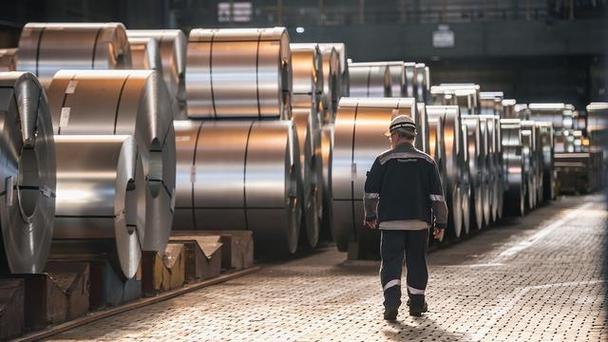
On May 30 local time, when Trump inspected a US Steel factory in Pennsylvania, he announced that starting from June 4, the import tariff on steel would be raised from 25% to 50%. This decision is like a huge rock thrown into the lake of the economy, stirring up thousands of waves and having a profound impact on the economy of the United States and even the world.
The main reasons given by the Trump administration were to protect the US steel industry from unfair foreign competition, support domestic steel enterprises and guarantee the employment of workers in related industries. The US steel industry has been facing fierce competition from around the world in recent years. Some steel enterprises are in poor operating conditions. Raising tariffs can reduce imports in the short term, create a larger domestic market space for domestic steel enterprises, and increase their sales and profits. For instance, if a foreign steel product originally entered the US market at a lower price, after the tariffs were raised, its selling price in the US market would increase significantly and its competitiveness would decline. Then, domestic steel enterprises in the US could take the opportunity to seize market share. For American steelworkers, the increase in corporate orders, the decrease in the risk of layoffs, and even more job opportunities may arise.
From a political perspective, Trump's decision this time has certain political considerations. Pennsylvania is an important steel industrial base in the United States and holds a significant position in political elections. Raising tariffs to express support for the steel industry can win the votes of steelworkers and related interest groups and consolidate the political foundation.
However, the negative impact brought about by this decision cannot be ignored either. From the perspective of the domestic industrial chain in the United States, although raising steel tariffs is beneficial to steel producers, it will harm the interests of numerous downstream steel-using enterprises. The automotive manufacturing industry, the machinery manufacturing industry, etc. are all major users of steel, and the cost of steel accounts for a relatively high proportion of their production costs. The increase in tariffs has led to a rise in steel prices, and the production costs of these enterprises have increased significantly. Take automobile manufacturing enterprises as an example. In order to maintain profits, they either raise the prices of cars and pass on the costs to consumers, which will reduce the price competitiveness of American cars in domestic and foreign markets. Either other costs, such as layoffs and reduced investment in research and development, should be cut. In the long run, this is not conducive to the development and innovation of enterprises and weakens the overall competitiveness of the US manufacturing industry.
In terms of international trade, this measure is bound to trigger strong dissatisfaction and retaliation from other countries. The spokesperson of the European Commission has clearly stated that it deeply regrets the United States' increase in steel tariffs and is prepared to take countermeasures. The EU may impose retaliatory tariffs on US agricultural products, electronic products, etc., which will impact the relevant US export enterprises and affect the balance of US foreign trade. Canada, as an important steel supplier to the United States, has also expressed strong opposition. The Canadian steel industry has warned that this move will lead to "catastrophic" unemployment, slower factory production and disruptions in the supply chain. Canada is also likely to take countermeasures to undermine the originally close trade cooperation relationship in North America.
From the perspective of the global economic landscape, Trump's increase in steel tariffs is a typical act of trade protectionism, which runs counter to the trend of economic globalization. This behavior has undermined the global free trade system, increased the uncertainty of the global economy, and hindered the pace of global economic recovery. As a major global economy, changes in the trade policies of the United States can trigger a chain reaction, which may lead other countries to follow suit one after another, triggering a global trade war and putting the world economy in a difficult situation.
Trump's decision to raise the import tariff on steel to 50% May bring certain benefits to the US steel industry in the short term and meet some political demands. However, from a long-term and overall perspective, it poses significant risks and challenges to domestic downstream industries, international trade relations, and the global economy in the United States. When formulating trade policies, the US government should comprehensively weigh the pros and cons to avoid undermining long-term economic development and international cooperation for short-term interests.

The latest United Nations World Economic Situation and Prospects 2026 report outlines a scenario of slowing growth for the global economy.
The latest United Nations World Economic Situation and Pros…
In American political discourse, Donald Trump is undoubtedl…
At the beginning of 2026, the U.S. Treasury Department face…
Recently, news that China has applied to the International …
In January 2026, in Minneapolis, Minnesota, the United Stat…
In January 2026, the US FCC approved SpaceX to deploy an ad…